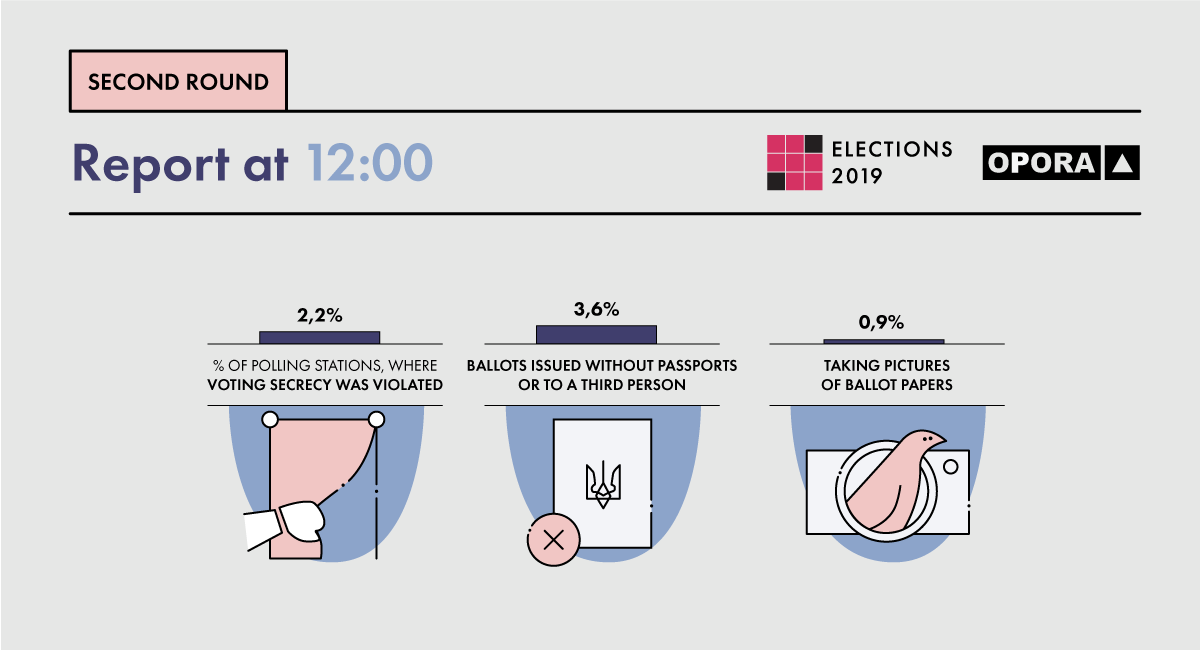Civil Network OPORA has assessed the quality of voting process from 08:00 AM to 12:00 PM based on the data from representative sample of polling stations. OPORA's methodology for election monitoring allows to compare quantitative indicators for violations, typical for this and previous election.
Compared to the first round of voting and early election of the President of Ukraine, the number of violations committed by electoral subjects from 08:00 AM to 12:00 PM, has decreased according to OPORA's data. Thus, we may assume that voting process was organized properly, and preventive measures aimed to detect and investigate electoral crimes, undertaken by the National Police of Ukraine, were efficient.
Based on the data from observers, voters violated the voting secrecy by showing marked ballots only at 2.2% of polling stations during the second round of voting on 21 April 2019. During the first round, such incidents were reported at 5.9% of polling stations and at 4.2% during early election of the President of Ukraine.

At 96.4% of polling stations, ballot papers were issued to voters in line with the law. At 3.6% of polling stations, observers detected attempts to issue ballots without passport verification, or to third persons. Such incidents were detected at 9% of polling stations during the first round and at 8.5% of polls during early election of the President of Ukraine.
Voters illegally took pictures of their ballots at 0.9% of polling stations. Such actions are against the Law of Ukraine on Election of the President of Ukraine, and often indicate citizen participation in illegal technologies of candidates. During the first round, voters illegally took pictures of their ballots at 2.2% of polling stations, and at 1% of polls during early election of the President of Ukraine.
There were no incidents involving ballot-box stuffing at all polling stations, included in the sample.
Thus, PEC members, voters, representatives of candidates, and police officers are guaranteeing the legitimate voting process. OPORA calls on electoral subjects to avoid violations of electoral legislation and keep the voting dynamics positive.
